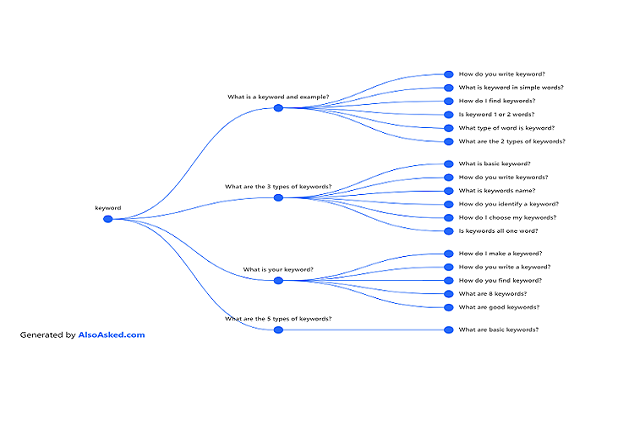Seed keywords are important for your content strategy and SEO. These are the ones that will boost your rankings and visibility in search engines.
They help you understand how and what type of searches your audience is after, and they also make them convert.
What are seed keywords?
Typically, they are short-tail keywords (usually one or two words) with higher search volume. They are also known as main keywords.
These kinds of keywords are, in most cases, also with higher competition and therefore harder to rank for in top positions, especially if you launch a new site and compete with domains and sites with higher authority.
An example of seed keywords is digital marketing. This is the main topic of marketing services offered by digital agencies. As you understand, ranking in the top positions for this is hard. One solution, and a workaround to that, is to add modifiers. These help the seed keywords as they are more descriptive and easier to rank for.
With that said, they also strengthen the overall understanding of the content/URL you are optimizing for.
But, how to find seed keywords, then?
Well, easy. Kind of.
Since you are building a site for trust and authority (right?), you should choose your seed keywords wisely and with thoughts. You will instantly see that the different keywords you look at, all have high competition. And they should.
They are more competitive because they are shorter, and therefore with higher search volume. And most of your competitors aim for them as well. Seems logic when you think about it.
The most important thing to consider when selecting the right seed keyphrases for your site and content is the subject and what best reflects your purpose. This is essential in the long run to build authority and trust, which you should be aiming for.
If you are launching a new website and are still in the development stage, consider your company’s long-term visions and goals. What do you want to achieve with your brand-new site?
With SEO for an ecommerce website, you should go for seed keywords around your products and categories for those. Starting a blog on a niched topic, like weight loss, you should go for keywords around health, weight, and nutrition.
Where on my site should I use the seed keywords?
That kind of depends. I like to build content clusters on sites, that sit in different sections. But all with a master seed keyword. The master seed kw should focus on the homepage and other seed keywords for category pages, or section pages.
And then you go from there.
This approach has shown me that it is easier to rank for more competitive keywords and phrases naturally. Without being spammy or risking violating the all-known guidelines for SEO.
This approach also builds a natural cluster or content environment within the site, and that is good for your users. The impact on SEO is also good as it gives you new content ideas.
How do I identify my long-tail keywords?
Let me give you an example.
Let’s say we are starting a brand-new ecommerce site for home furniture. Here is what I would do:
- Master seed keyword: Home Furniture
- Seed keywords
- Dining furniture
- dining table sets (long-tail)
- chairs and stools (long-tail)
- Living room furniture
- Bedroom furniture
- king-size beds
- nightstands
- full-size beds
- king-size bedroom sets
- Home office
- desks
- desk chair
- writing desk
- Mattresses
- Dining furniture
Depending on competition and search volume, I would aim for one, or two seed keyword variations for each category in the example above. And the more specific searches related to each category will be directed toward subcategories or even products, depending on the search.
But remember to keep it simple and logical.
Tools to find seed keywords
In order to find the keywords you should go for, you should use several tools. But start with Google’s Keyword Planner in the Ad tool. And if you have an existing site, look into Search Console and learn how you can benefit by identifying the low-hanging fruits.
Besides that, there are a couple of third-party tools you can/should use as well. Personally, I always go for keyword planner from Google and Ahrefs together with SEMrush. This gives me plenty of ideas and insights on what to focus on and how you can outrank your competitors. Learn more about Ahrefs and other tools in my article about my favorite SEO tools.
Look at what your competitors are ranking for – this is natural but also very important as it gives you ideas on what they are not ranking for. You will also learn that they are not performing well on all the important keywords, so you see the potential there as well.
Look at the SERPs for the different keywords – study the related searches and the “people also ask” features. This gives you ideas on related searches and search intentions.
Don’t forget to study the meta-titles and meta-descriptions in search results related to the keywords.
Need other interesting insights for your ecom in 2023? Get in touch by hi@magnusstrandberg.com




